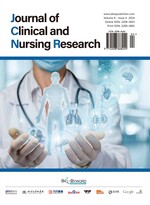Abstract
Objective: To systematically analyze the research status and application of progressive muscle relaxation training (PMRT) in the nursing field in China, and provide a reference basis for scientific research in this field. Methods: The bibliometric method was adopted in “progressive muscle relaxation training” or “PMRT,” and “nursing.” The established database was included in the China National Knowledge Infrastructure (CNKI) and the Wanfang Medical Network. The relevant articles in the Chinese Science and Technology Periodical Database (VIP) were analyzed. Results: A total of 169 literatures were included. The journals, years, and regions of literature publication were uneven, mainly originating from the eastern region (43.19%), and listed the application of progressive muscle relaxation training in the field of nursing in China. Intervention literature information was mainly dominated by experimental studies (97%). Conclusion: The related research and application of progressive muscle relaxation training in nursing in China is increasing, but there is a lack of objective evaluation of outcome indicators and a short intervention period. Further research should be conducted in the future to effectively guide the development of PMRT in the field of nursing in China.
References
Aksu NT, Erdogan A, Ozgur N, 2018, Effects of Progressive Muscle Relaxation Training on Sleep and Quality of Life in patients with Pulmonary Resection. Sleep Breath, 22(3): 695–702.
Karbandi S, Hosseini SM, Masoudi R, 2015, Recognition of the Efficacy of Relaxation Program on Sleep Quality of Mothers with Premature Infants. Journal of Education and Health Promotion, 2015(4): 97.
Meyer B, Keller A, Wöhlbier HG, 2016, Progressive Muscle Relaxation Reduces Migraine Frequency and Normalizes Amplitudes of Contingent Negative Variation (CNV). The Journal of Headache and Pain, 2016(17): 37.
Luo D, 2016, Study on the Effect of Relaxation Training on Chemotherapy-Induced Nausea and Vomiting in Lung Cancer Patients, dissertation, Peking Union Medical College.
Xu C, Progressive Muscle Relaxation and The Care of Bladder Spasm after Prostate Electrocision, dissertation, Zhejiang Clinical Medicine.
Ju S, Ouyang Y, Wang X, 2017, Progress of Progressive Muscle Relaxation Training in Nursing. Journal of Nursing, 32(13): 95–98.
Bi Y, 2017, Research on Clinical Characteristics and Pattern of Evidence of Insomnia in Liver Disease, dissertation, Shandong University of Traditional Chinese Medicine.
Xu C, 2018, Progressive Muscle Relaxation and Care of Bladder Spasm after Prostate Electrocision. Zhejiang clinical medicine, 4(20).
Wang J, 2018, Retrospective Analysis of 860 Cases of Liver Cirrhosis Etiology and Related Clinical Data, dissertation, Dalian Medical University.
Zhang R, 2019, The Role of Touch Therapy Combined with Progressive Muscle Relaxation Training in Reducing Perioperative Stress Response in Gastric Cancer Patients. Chinese Journal of Modern Nursing, 22(25).
Cheng L, Xie L, Han L, et al., 2018, Observation on the Application Effect of Caring Health Education Combined with Progressive Muscle Relaxation Training on HIV-Positive Pregnant Women. China AIDS STD, 24(5): 474–477.
Goksin I, Ayaz-Alkaya S, 2020, The Effect of Progressive Muscle Relaxation on The Postpartum Depression Risk and General Comfort Levels in Primiparas. Stress and Health: Journal of the International Society for the Investigation of Stress, 2020(3):2.
Zhou K, Li X, Li J, et al., 2015, A Clinical Randomized Controlled Trial of Music Therapy and Progressive Muscle Relaxation Training in Female Breast Cancer Patients after Radical Mastectomy: Results on Depression, Anxiety, and Length of Hospital Stay. Eur J Oncol Nurs, 19(1): 54–59.
Hopwood P, Sumo G, Mills J, et al., 2010, The Course of Anxiety and Depression Over 5 Years of Follow-Up and Risk Factors in Women with Early Breast Cancer: Results from the UK Standardization of Radiotherapy Trials. Breast Cancer, 19(2): 84–91.
Brothers BM, Yang HC, Strunk DR, et al., 2011, Cancer Patients with Major Depressive Disorder: Testing a Biobehavioral/Cognitive Behavior Intervention. Journal of Consulting and Clinical Psychology, 79(2): 253–260.
Isa MR, Moy FM, Abdul Razack AH, 2013, Impact of Applied Progressive Deep Muscle Relaxation Training on The Level of Depression, Anxiety and Stress Among Prostate Cancer Patients: A Quasi-Experimental Study. Asian Pac J Cancer Prev, 14(4): 2237–2242.
Bi Y, 2017, Research on Clinical Characteristics and Pattern of Evidence of Insomnia in Liver Disease, dissertation, Shandong University of Traditional Chinese Medicine.
Luo D, 2016, Study on the Effect of Relaxation Training on Nausea and Vomiting Caused by Chemotherapy in Lung Cancer Patients, dissertation, Peking Union Medical College.
Sun J, 2017, Clinical Study of Preoperative Progressive Muscle Relaxation Training to Reduce Blood Pressure and Heart Rate Fluctuation During Anesthesia in Patients with Local Infiltration Anesthesia for Craniotomy. Clinical Medical Engineering, 4(24).
